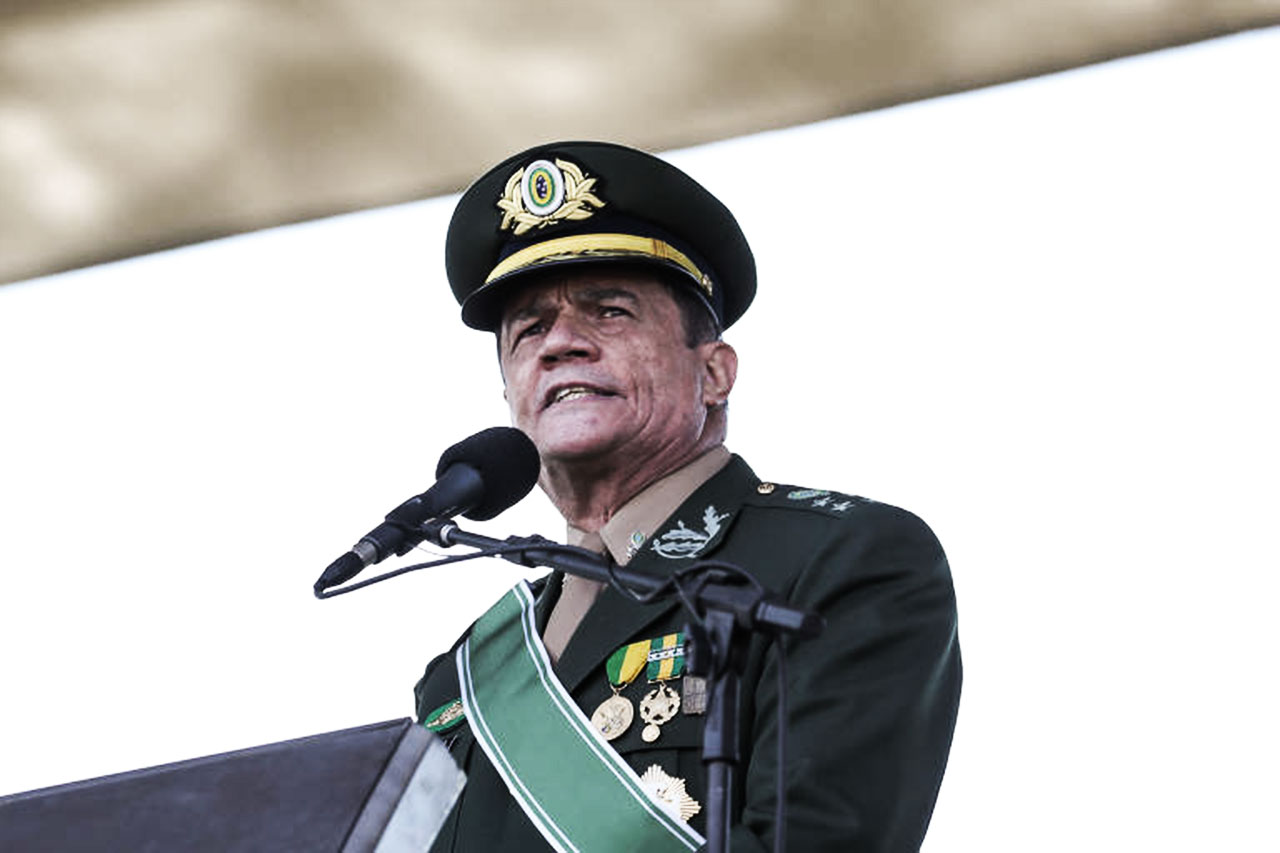Brazil’s progressive media has repeatedly warned of the Military threat hanging over the 2022 election for several years. Such fears were, until recently, met with complacency in mainstream circles. There is now every sign that, as feared, the Military will not willingly vacate government.
One day after Jair Bolsonaro’s meeting with Joe Biden in Los Angeles, after which the far-right president expressed his satisfaction, the Brazilian Armed Forces issued their gravest and most explicit threat yet to the 2022 Presidential Election, and the warning came from the heart of his military-dominated government: Defense Minister General Paulo Sérgio Nogueira de Oliveira.
It is the latest in a series of military interventions in Brazil’s judiciary since the coup of 2016.
Missed by the international press, in the public segment of his meeting with Biden, Bolsonaro used a coded message, the word “auditable”, in his assurances on the legitimacy of the coming election. This was a dogwhistle reference to his and the Armed Forces attacks on the electronic voting system.
One day later Defense Minister General Paulo Sérgio Nogueira de Oliveira sent a letter to Electorial Court (TSE) President Edson Fachin, expressing the Armed Forces’ dissatisfaction with the Court’s responses to “technical” issues raised by the military in the context of the Electoral Transparency Commission, a new body they were invited onto following the threatened coup on September 7 2021.
The General’s letter, loaded with threat and insinuation, leaves no doubt that the objective of Military top brass is open confrontation with electoral authorities, ahead of a vote in which their candidates hopes of re-election look slim.
The letter ends with a direct threat:
“Finally, I close by saying that it is not in our interest to conclude the election under the shadow of the voters’ distrust. Transparent elections are matters of national sovereignty and respect for voters”.
Nogueira de Oliveira uses the same conspiratorial concepts and language as Bolsonaro and the Generals have repeated for the past year, and highlighted in bold are several threatening passages. It makes clear that, despite the constitution, the Military, see themselves as guardians of the electoral system and democracy, as the “fourth power of the Republic”:
“Without this dedicated, zealous and efficient work of the Armed Forces, it becomes very difficult for the Brazilian State to carry out elections in part of the country.”
The General follows on this theme:
“the work of the Armed Forces is always democratic, seeking to contribute to the country having fair, democratic and transparent elections.”, “the Armed Forces developed plausible proposals, at various levels, from technical to governance”, “I reiterate that the suggestions proposed by the Armed Forces need to be debated by the technicians.”, “It should be noted that a fundamental premise is that the exercise of the vote is secret, not its verification.”, “In summary, what is sought with the proposals of the Armed Forces is to improve the security and transparency of the electoral process”.
“it is established that parties and coalitions will be able to inspect all the phases of the voting process and the counting of elections and the electronic processing of the aggregation of the results”, referring to previous demands for auditing via printed vote and parallel count conducted by the Armed Forces themselves.
To justify all this, he argues that “the Armed Forces were invited by this Court” and “listed as supervisory entities”. The general then complains that the “TSE has signalled that it does not intend to deepen the discussion”.
In a chilling passage which made the headlines, Bolsonaro’s Defence Minister complains that “the Armed Forces do not feel properly honored” by the Electoral Court.
Nogueira de Oliveira also asserts that among “missions established by the People for the Armed Forces” is “the defense of the Fatherland and the guarantee of constitutional powers, law and order”.
This statement is not found in the 1988 Brazilian Constitution.
The threatening letter to the Electoral Court president came just one day after the meeting between Bolsonaro and US President Joe Biden, and amid assurances on both Bolsonaro and the U.S. government’s part that Brazil’s imminent elections will be “free and fair“.
[qpp]

